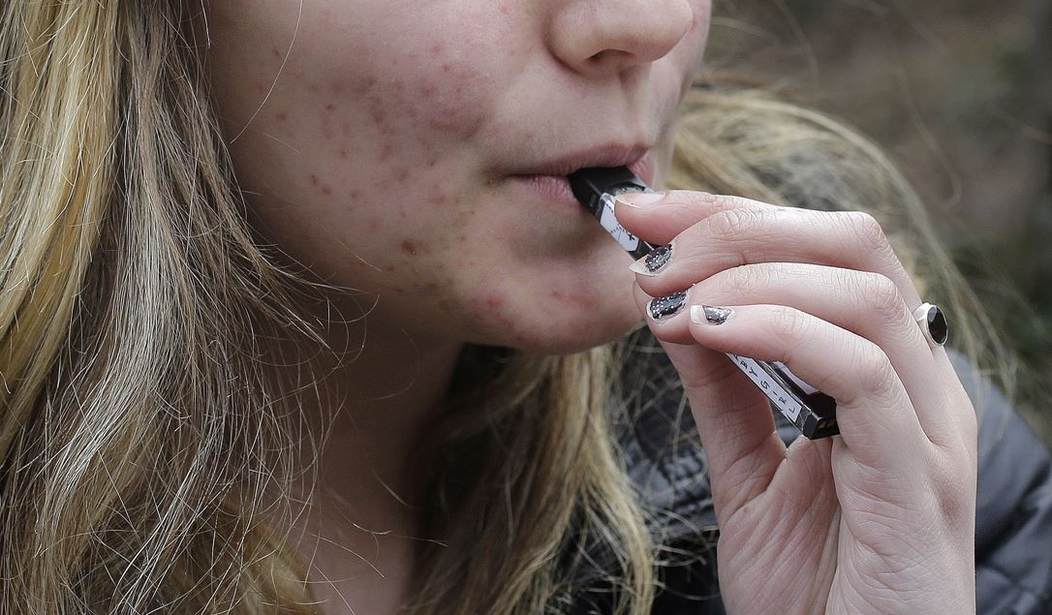On July 26 it was announced that Matthew Holman, director of the Office of Science (OS) in the U.S. Food and Drug Administration’s (FDA) Center for Tobacco Products (CTP), was leaving the agency to work for Philip Morris International (PMI).
There have been valid concerns that this is an example of a political revolving door. But, Holman’s contributions to the tobacco and nicotine debate in recent years seems to suggest he was increasingly a square peg in a round hole at the FDA during his 20 years at the agency.
As head of the OS, he oversaw the authorization of PMI’s IQOS heated tobacco system and eight varieties of Swedish Match’s smokeless tobacco products as modified risk tobacco product (MRTPs). Holman had a front row seat to witness the benefits of tobacco harm reduction.
In a Q&A session at the E-cigarette Summit US in May 2021, Holman also made comments which showed his familiarity with the potential benefits of vaping products. This included recognition of the importance of flavors, on which he opined “from a public health perspective, we do need flavored products out there to see that shift down the continuum of risk of combusted cigarette smokers to less toxic products.” On youth vaping he was equally pragmatic, understanding that for many young people, vaping could be a healthier option.
“If they were to pick up a cigarette and they’re going to continue to smoke those cigarettes throughout their life,” Holman asked, “would it be better for those kids, even underage, to switch to an e-cigarette? From an individual public health perspective, I think it is.”
Recommended
Since 2020, the FDA has been considering a massive number of premarket tobacco product applications (PMTAs) submitted by manufacturers of vaping products. These products have been assessed by the Royal College of Physicians as “unlikely to exceed 5% of the harm from smoking tobacco.” With lethal combustible cigarettes widely available in the U.S., it should have been a no-brainer to authorize a wide variety of vaping products and promote them to people who smoke to improve American public health.
In September, 2021, amid pressure from single interest pressure groups and ill-informed members of Congress, the FDA issued denial orders for nearly 1 million flavored e-cigarette e-liquid products, sending the market into meltdown, and throwing away a huge boost to the public health of Americans, 34 million of whom still smoke.
At the 2022 E-cigarette Summit US, Holman consequently found himself fending off justified criticism of the FDA from policy experts during a Q&A session by citing “restrictions that people on the outside [of the FDA] don’t necessarily understand that we have to deal with.”
Critics of public sector regulatory barriers refer to the mess of bureaucratic red tape as “the swamp.” In the case of tobacco harm reduction, an FDA regulator who wishes to maximize the benefits of vaping products would feel like they are wading through thick glop rather than a swamp. At some point it would be reasonable for someone like Holman to climb out of the glop and walk along more solid ground to achieve the huge advance in public health that he has seen occur in other countries that have embraced these harm reduction techniques and products.
In the UK, flavored vaping products, heated tobacco and nicotine pouches are not only recognized as useful for helping smokers to quit, they are endorsed by government-funded public health organizations. More importantly, they are sold as consumer products, leading to significant declines in smoking prevalence and better public health outcomes, yet in the U.S. there is a politically led inertia which holds back progress due to the hysterical screeching of shrill, heavily funded anti-vape prohibitionists.
It is no wonder that Holman may have felt he was unable to serve the American public with such barriers placed in his way, and that he no longer felt able to promote and defend the agency’s actions when faced with justified criticism at public health conferences.
Further, this is a shocking indictment of the FDA that one of their top scientists feels he is better placed working to reduce the harms of smoking, which claims 480,000 lives in the U.S. each year, with a tobacco company rather than at the hopelessly incompetent and politically hogtied FDA.
The FDA failed Holman and his scientific credentials. But, more importantly, the FDA is failing the millions of smokers who desperately need help quitting combustible cigarettes.
Martin Cullip is International Fellow at The Taxpayers Protection Alliance's Consumer Center and is based in South London, UK.
























Join the conversation as a VIP Member